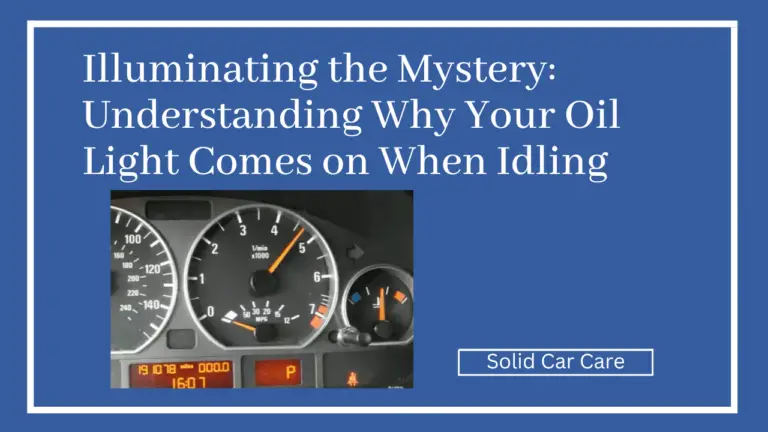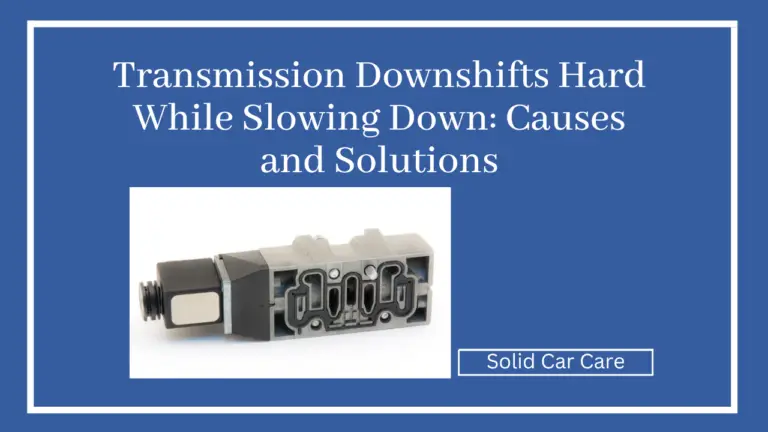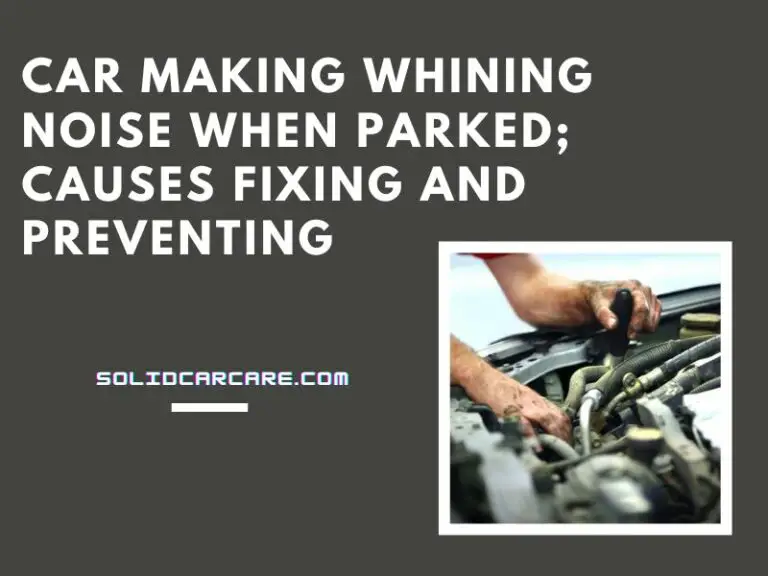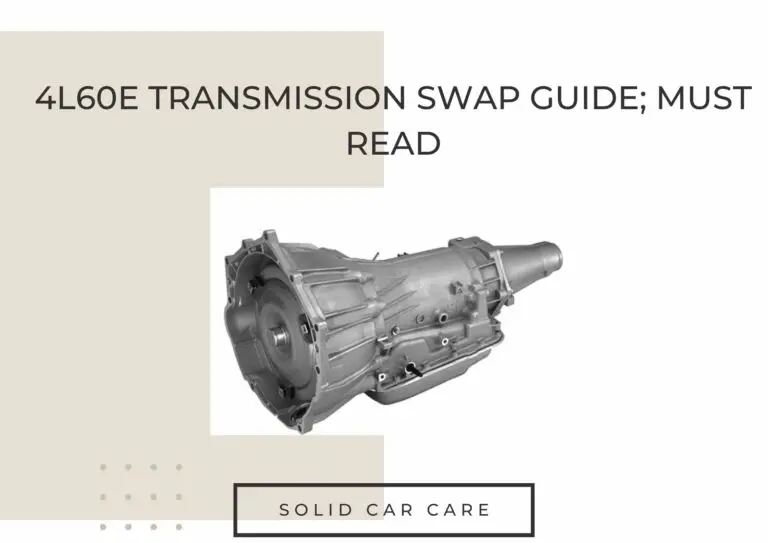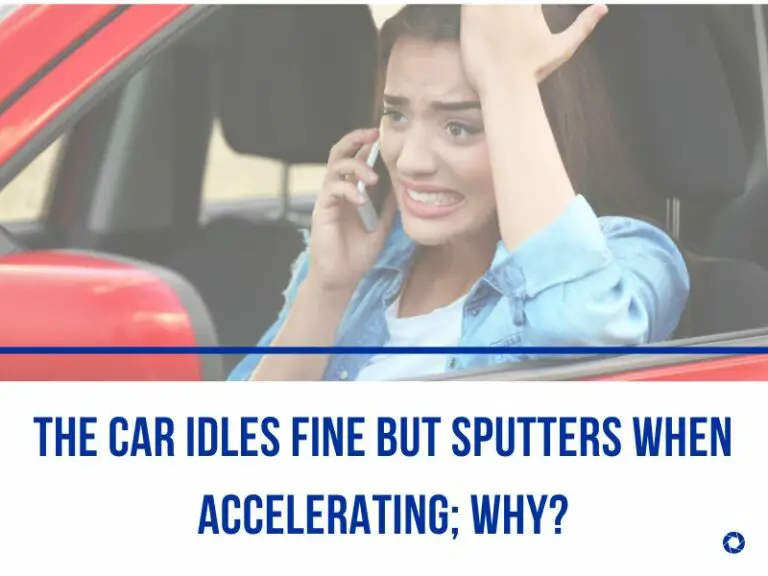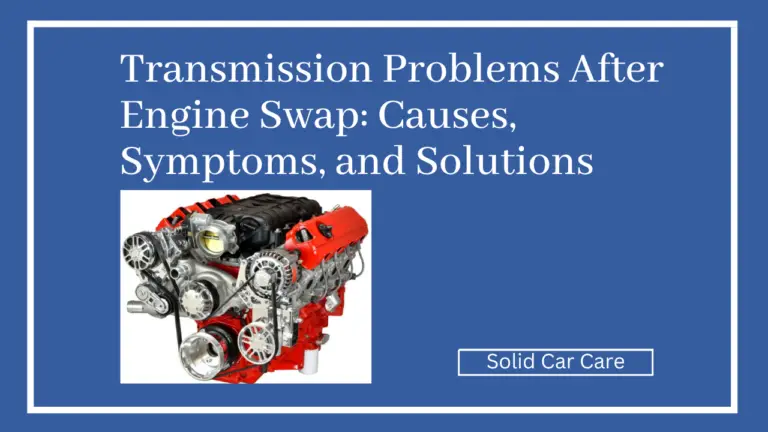Decoding the Mystery: Why Is Your Car Making a Humming Noise When Driving?

As you navigate the open road, the unexpected sound of a humming noise emanating from your car can leave you puzzled. What could be the source of this mysterious sound, and is it something you should be concerned about?
In this article, we’ll explore the causes behind a car making a humming noise when driving and discuss the importance of promptly addressing unusual vehicle sounds.
Table of Contents
What is a Humming Noise?
Before diving into the potential causes, let’s take a moment to understand the humming noise itself.
This peculiar sound can indicate an underlying issue within your vehicle’s various components. Attention to these audible clues can catch problems early and prevent further damage or safety hazards.
Why do I hear a humming sound when I drive?
Worn-out Wheel Bearings

One possible culprit behind the humming noise is worn-out wheel bearings. Wheel bearings allow smooth rotation between the wheel hub and the axle. Over time, these bearings can wear down due to constant friction and exposure to the elements.
Symptoms
Symptoms of worn-out wheel bearings include a humming or droning noise, especially when the vehicle is in motion. Neglecting this issue can lead to severe consequences, such as wheel instability or even wheel detachment while driving. Therefore, it’s crucial to have a qualified technician inspect the wheel bearings and replace them if necessary.
Uneven Tire Wear
Another potential cause of the humming noise is uneven tire wear. Tires that have worn down unevenly can produce a humming sound as they make contact with the road surface. Uneven tire wear can result from various factors, including improper wheel alignment, incorrect tire pressure, or suspension problems.
What to do?
Regular tire maintenance, including proper inflation and routine alignment checks, is essential to prevent uneven tire wear. Addressing this issue promptly will eliminate the humming noise, ensure optimal tire performance, and enhance overall driving safety.
Faulty Differential
The differential is a vital component of your vehicle’s drivetrain, responsible for distributing power to the wheels while allowing them to rotate at different speeds. A faulty differential can manifest as a humming noise, particularly during acceleration or deceleration.
What causes a faulty differential?
Insufficient lubrication or worn-out gears and bearings within the differential can lead to the development of this noise. Seeking professional evaluation and repair is crucial to prevent further damage to the drivetrain and restore smooth, noise-free operation.
Transmission Issues
Problems with the transmission can also contribute to a humming noise while driving. The transmission plays a critical role in shifting gears and transferring power from the engine to the wheels. If there are issues with the transmission, such as low fluid levels or worn-out gears and bearings, it can result in an audible humming noise.

Symptoms
Symptoms of transmission issues may include difficulty shifting gears, slipping gears, or delayed engagement. Consulting a qualified mechanic for diagnosis and repair is recommended to address the underlying transmission problems and eliminate the humming noise.
How do you fix a hum noise?
When it comes to fixing a humming noise in cars, it’s important to identify the source of the noise and address the underlying cause. Here’s a comprehensive explanation of the steps you can take to resolve a hum noise issue:
- Locate the Source of the Noise
- Pay close attention to when and where the humming noise occurs. Is it present while the car is stationary, only when driving, or during specific maneuvers? Determining the exact source will help narrow down the potential causes.
- Check the Tires
- Inspect the tires for any signs of wear, uneven tread patterns, or damage. Worn-out or unevenly worn tires can generate a humming noise, especially at higher speeds. Consider rotating or replacing the tires if necessary.
- Examine the Wheel Bearings
- Faulty wheel bearings can cause a humming noise, particularly while driving. Jack up each wheel and check for any play or roughness when rotating the wheel by hand. If you notice any issues, have the wheel bearings inspected and replaced by a professional.
- Inspect the Brakes
- Worn-out brake pads or damaged brake components can produce a humming noise. Check the brake pads for wear and replace them if necessary. Inspect the brake rotors for any signs of damage or warping. If the noise persists, have a mechanic examine the brake system for potential issues.
- Check the Exhaust System
- A damaged or loose exhaust system can create a humming noise. Inspect the exhaust pipes, muffler, and hangers for any signs of damage or looseness. Tighten or repair any loose or damaged components. If needed, consult a professional for further evaluation and repairs.
- Evaluate the Suspension System
- Faulty suspension components, such as worn-out bushings or struts, can lead to a humming noise. Inspect the suspension system for any signs of wear, damage, or leakage. Replace worn-out components or have a mechanic perform the necessary repairs.
- Examine the Drive Belts
- Loose or worn drive belts can generate a humming noise. Inspect the belts for any signs of damage, cracking, or looseness. Adjust or replace the belts as needed. It’s recommended to follow the manufacturer’s guidelines for proper belt tension and replacement intervals.
- Address Electrical Issues
- In some cases, electrical issues can contribute to a humming noise. Inspect the electrical components, such as the alternator, power steering pump, and air conditioning compressor, for any signs of malfunction or excessive noise. Seek professional assistance if you suspect electrical problems.
- Seek Professional Assistance
- If you’re unable to identify the source of the humming noise or if the issue persists after performing the above steps, it’s advisable to consult a qualified mechanic or automotive technician. They have the expertise and diagnostic tools to accurately diagnose and resolve complex noise-related problems.
Remember, addressing a humming noise requires careful inspection and diagnosis. By following these steps and seeking professional help when needed, you can effectively resolve the issue and enjoy a quieter and smoother driving experience.
Groaning Noise When Reversing; Must Read
SOLIDCARCARE.COM
Conclusion
While a humming noise from your car may initially seem like a mere annoyance, it is essential not to ignore it. Understanding the potential causes, such as worn-out wheel bearings, uneven tire wear, faulty differentials, or transmission issues, can help you take the necessary steps to resolve the problem promptly.
Regular maintenance, including inspections and timely repairs, is crucial to prevent future issues and ensure your vehicle’s longevity. By staying vigilant and addressing unusual car noises, including the mysterious humming sound, you can maintain a safe and enjoyable driving experience for years to come.
Some related FAQs
Why is my car making a humming noise while driving?
A humming noise while driving can indicate various issues, such as worn-out tires, faulty wheel bearings, or problems with the exhaust system. It’s important to identify the specific source of the noise to determine the appropriate solution.
Can low tire pressure cause a humming noise?
Yes, low tire pressure can lead to uneven wear on the tires, resulting in a humming noise while driving. Ensure that your tires are properly inflated according to the manufacturer’s recommendations.
How can I tell if my wheel bearings are bad?
Signs of bad wheel bearings include a humming noise that becomes more pronounced at higher speeds, wheel vibration or wobbling, and excessive play when the wheel is lifted off the ground. If you suspect bad wheel bearings, have them inspected and replaced by a professional.
Can a humming noise be caused by a faulty power steering pump?
Yes, a malfunctioning power steering pump can generate a humming noise. If the noise is more prominent when turning the steering wheel, it’s worth inspecting the power steering system for any issues.

